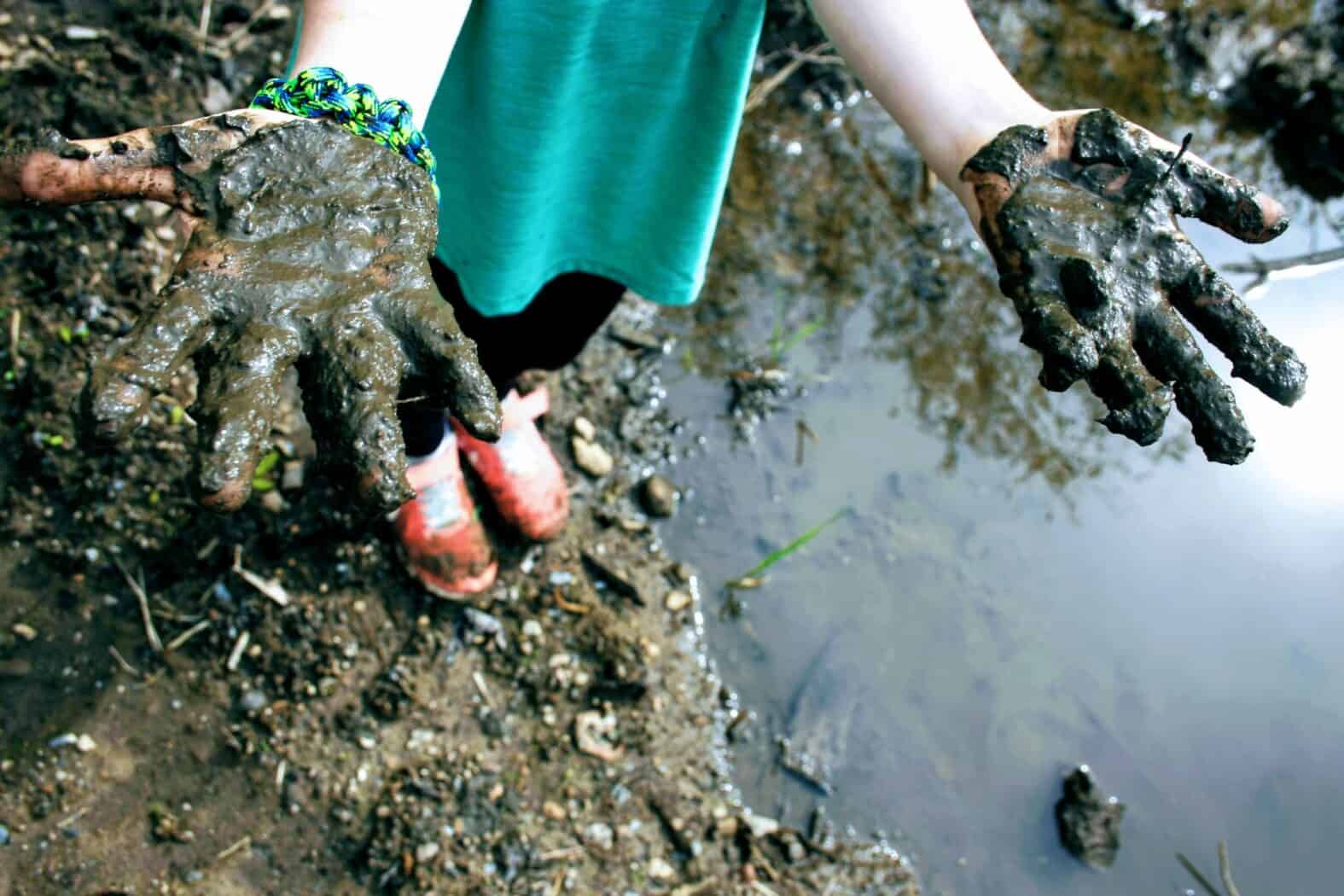
How to Train Your Immune System
By Galen Lastko,
Photo by Ellie Storms on Unsplash
Published in the Humboldt Independent on April 27, 2021
While waiting in line at the grocery store last week, I ended up behind a mom and her young lad, who was maybe about six or seven. With the kind of comedic timing that cannot be taught, he grinned broadly, looked me straight in the eye, and started chewing on the handle of a nearby shopping cart. Now, I consider that a tough act to follow any day of the week, and the best I could muster while his mom intervened was something about how he’s “building a strong immune system.” In a later moment of little bear brain contemplation, I realized that aside from anecdotal this or that, I didn’t have any sources. If that kid was now making the world his popsicle because of my poor attempt at humor, how could I forgive myself? While the hygiene hypothesis, which posits that exposure to bacteria and other microbial beings is ultimately good for children and their immune systems, has been floating around for a while now, and research has made it increasingly clear that our immune systems do actually strengthen as they encounter and overcome infections, that does not mean we put things in our mouth. No, not even if the dog does it.
Innate & adaptive immune systems
Alloantigens are passed on directly by mom during pregnancy, essentially sharing information from her immune system to give junior a head start.
Your typical baby human starts with what’s called an innate immune system, which develops along with said baby in utero. Technically, your innate immune system includes everything from the physical barrier of your skin and hair, to compounds in your blood, to general-purpose custodial and security staff within the body including macrophages and “natural killer” cells. Alloantigens (not the dinosaurs, but a sort of natural vaccine, that teaches the body how to produce antibodies for things it hasn’t encountered yet) are passed on directly by mom during pregnancy, essentially sharing information from her immune system to give junior a head start.
Long before we’re old enough to start putting things in our mouths, our bodies have come into contact with all kinds of foreign agents and microscopic life forms – it can’t really be avoided. Before we’re even out of the womb, our other, so-called adaptive immune system starts working. This is where antibodies get made to target specific problems. The experience these early skirmishes provide forms the foundation for our adult immune systems, including the introduction of the many kinds of friendly bacteria we need to stay healthy.
Immunological memory
The more infections both our innate and adaptive immune systems have to tangle with, the more we develop what’s called our immunological memory, which increases the overall ability of the body to deal with new infections. This is partially why kids get sick a lot during infancy and early childhood: their immune systems have a lot to learn and most of that learning has to be done the hard way. Early and timely vaccination crucially reduces the workload imposed on an already overtaxed young immune system, which is often plenty busy sorting out exactly what might have slipped aboard alongside that last discretely-consumed booger.
Our adult immune systems, both adaptive and innate, will gradually begin to decline as the wear and tear on our bodies and the process of aging begins to eclipse the value of an experienced immune system, and we return to relative immunological vulnerability: the mortality rate of infections for those aged 65 and older is three times higher. Similar to our muscles, organs, brains, and bones, an aged immune system has the same tools, but they don’t always work like they used to. I know plenty of folks twice my age who seemingly haven’t gotten that memo, but they’ve put in the effort to stay healthy and active, something most of us could probably benefit from more of today.
A year without sharing colds is not going to compromise anyone’s long-term immunology.
The pandemic has ingrained in most of us an urgency towards hygiene, and by necessity, we’ve been avoiding face-to-face interactions. While there is generally little long-term advantage to having a sheltered immune system, it’s a lot better than getting COVID-19. A year without sharing colds is not going to compromise anyone’s long-term immunology. If you’re looking for a way to give your kid some agency, take whatever opportunity they provide (or put in their mouth) to teach them about the immune system, and how things like vegetables, bedtimes, and other points of contention are there to protect us and keep us strong, and to give us the tools we need to be at our best. Our bodies keep us healthy by gathering knowledge and training our defenses, even when we’re eating dirt and trying to fit marbles up our nose: the least we can do as grownups is lend a hand. Regardless of how old or young you happen to be (or feel), there’s always one little thing you can do every day to take care of yourself and let your immune system breathe a little easier. You’re absolutely worth it.
In writing this article, I referenced a number of papers which cover a lot of this in a level of detail that made me realize how long it’s been since I went to college. Have a look at https://www.ncbi.nlm.nih.gov/pmc/articles/PMC4707740/ or https://www.ncbi.nlm.nih.gov/pmc/articles/PMC2841828/ if you’re interested, you’ll be able to find plenty more good links in the citations.
Galen Lastko, submitted on behalf of the SoHum Health’s Outreach department.
Related: Colds & Flu, Nutrition, Wellness